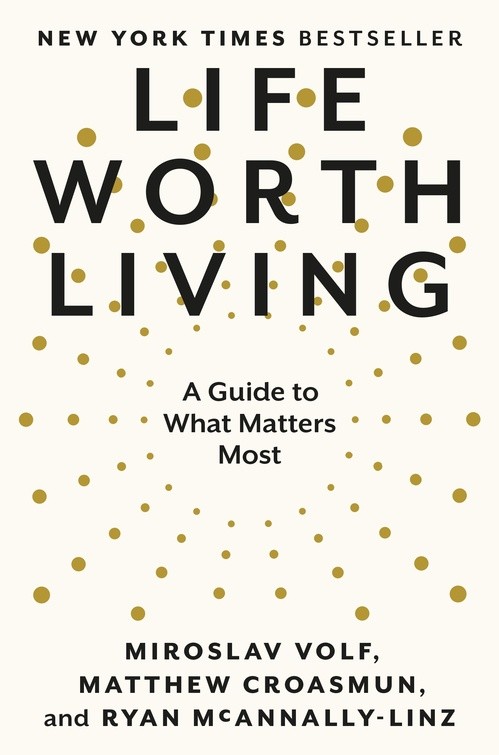Delight: A Defense Against the Dark Arts
Each week, Pastor Kim will provide resources to accompany the sermon series, including a Spotify playlist, a book recommendation, and a tool to help you apply what you're learning.
Start by listening to the sermon, "Delight: A Defense Against the Dark Arts" then check out the resources below.
Start by listening to the sermon, "Delight: A Defense Against the Dark Arts" then check out the resources below.
Video: Dr. Yuyu Song on Christian Meditation
Pastor Kim spoke with Dr. Yuyu Song about Christian meditation, Psalm 1, and "delighting in the Law of the Lord." Dr. Song is a researcher at Mass General in Boston.
Click here to view
The purpose of this playlist is to help you live the gift that is your life!!!
Hopefully the Holy Spirit will connect you to the Word, reminders of God’s desires for the human race, understandings of how our neighbors engage with life and much more!
Many of these songs will be from artists who may not personally know Jesus—they are here because all good things are taken up into the life of God and belong to God. He provided the resources to create these songs and when they are shared they become part of the good gifts that God gives us.
Every week new songs will be added based on new themes that arise from our time in the Word on Sundays!
I hope you enjoy!
Please email me any song suggestions you might have: kim@folcov.org
A Guide to Meditation
Three Stages of Meditation
John Owen suggests there are three stages of meditation in his work, The Grace and Duty of Being Spiritually Minded.
Keller calls these stages:
Here is how John Owen describes it: Three things may be distinguished in the great duty of being spiritually minded.
Engaging the Mind
“The actual exercising of the mind, in its thoughts, meditations, and desires, about things
spiritual and heavenly…. They mind them by fixing their thoughts and meditations upon
them.”
Inclining the Heart
“The inclination, disposition, and frame of the mind, in all its affections, whereby it adheres
and cleaves unto spiritual things…from the love and delight…in them and engagement unto
Them.”
Enjoying the Lord
“A complacency of mind, from that gust, relish, and savor, which it finds in spiritual things, from their suitableness unto its constitution, inclinations, and desires. There is a salt in spiritual things, whereby they are condited and made savory unto a renewed mind; though to others they are as the white of an egg, that hath no taste or savor in it. In this gust and relish lies the sweetness and satisfaction of spiritual life. Speculative notions about spiritual things, when they are alone, are dry, sapless, and barren. In this gust we taste by experience that God is gracious, and that the love of Christ is better than wine, or whatever else hath the most grateful relish unto a sensual appetite. This is the proper foundation of that joy which is “unspeakable and full of glory.”
Five Methods for Meditation
1. Read the biblical text slowly, answering four questions as you go
a. What does this teach me about God and his character?
b. About human nature, character, and behavior?
c. About Christ and his salvation?
d. About the church, or life in the people of God?
2. Ask application questions of the text
a. Any personal examples to emulate or avoid?
b. Any commands to obey?
c. Any promises to claim?
d. Any warnings to heed?
3. Take one verse and emphasize each word, asking what each words uniquely contributes
a. For example, “Follow me, and I will make you to become fishers of men” (Mark 1:17)
b. Follow – we must align our lives
c. Me – not just obedience but relationship
d. I will – a promise and assurance
e. Become – a process, not a single event
4. Paraphrase the verse in your own words
a. Verbally and written
b. Repeat at various times
5. Memorize the text
a. Especially fruitful when combined with one of the other approaches
b. Memorizing is “learning by heart”
* This material is drawn from Tim Keller, Prayer, chapter 10.
John Owen suggests there are three stages of meditation in his work, The Grace and Duty of Being Spiritually Minded.
Keller calls these stages:
- Engaging the mind,
- Inclining the heart and
- Enjoying the Lord.
Here is how John Owen describes it: Three things may be distinguished in the great duty of being spiritually minded.
Engaging the Mind
“The actual exercising of the mind, in its thoughts, meditations, and desires, about things
spiritual and heavenly…. They mind them by fixing their thoughts and meditations upon
them.”
Inclining the Heart
“The inclination, disposition, and frame of the mind, in all its affections, whereby it adheres
and cleaves unto spiritual things…from the love and delight…in them and engagement unto
Them.”
Enjoying the Lord
“A complacency of mind, from that gust, relish, and savor, which it finds in spiritual things, from their suitableness unto its constitution, inclinations, and desires. There is a salt in spiritual things, whereby they are condited and made savory unto a renewed mind; though to others they are as the white of an egg, that hath no taste or savor in it. In this gust and relish lies the sweetness and satisfaction of spiritual life. Speculative notions about spiritual things, when they are alone, are dry, sapless, and barren. In this gust we taste by experience that God is gracious, and that the love of Christ is better than wine, or whatever else hath the most grateful relish unto a sensual appetite. This is the proper foundation of that joy which is “unspeakable and full of glory.”
Five Methods for Meditation
1. Read the biblical text slowly, answering four questions as you go
a. What does this teach me about God and his character?
b. About human nature, character, and behavior?
c. About Christ and his salvation?
d. About the church, or life in the people of God?
2. Ask application questions of the text
a. Any personal examples to emulate or avoid?
b. Any commands to obey?
c. Any promises to claim?
d. Any warnings to heed?
3. Take one verse and emphasize each word, asking what each words uniquely contributes
a. For example, “Follow me, and I will make you to become fishers of men” (Mark 1:17)
b. Follow – we must align our lives
c. Me – not just obedience but relationship
d. I will – a promise and assurance
e. Become – a process, not a single event
4. Paraphrase the verse in your own words
a. Verbally and written
b. Repeat at various times
5. Memorize the text
a. Especially fruitful when combined with one of the other approaches
b. Memorizing is “learning by heart”
* This material is drawn from Tim Keller, Prayer, chapter 10.
Book Recommendation
Question of the book:
What is the shape of flourishing life?
"to do so we'll describe four different modes of being in the world, each with its own characteristic kind of question...
One mode is reflexive- a spontaneous, embodied state of activity. We'll call it 'autopilot.' The other modes of being in the world are reflective. We'll call them 'effectiveness,' 'self-awareness,' and 'self-transcendence.'"
Each of these modes has its own corresponding question:
Available here:
What is the shape of flourishing life?
"to do so we'll describe four different modes of being in the world, each with its own characteristic kind of question...
One mode is reflexive- a spontaneous, embodied state of activity. We'll call it 'autopilot.' The other modes of being in the world are reflective. We'll call them 'effectiveness,' 'self-awareness,' and 'self-transcendence.'"
Each of these modes has its own corresponding question:
- Autopilot: "We do what we do because that's what we do."
- Effectiveness: "Is what we do getting us what we want?"
- Self-Awareness: "What do we really want?"
- Self-Transcendence: "What is worth wanting?"
Available here:

